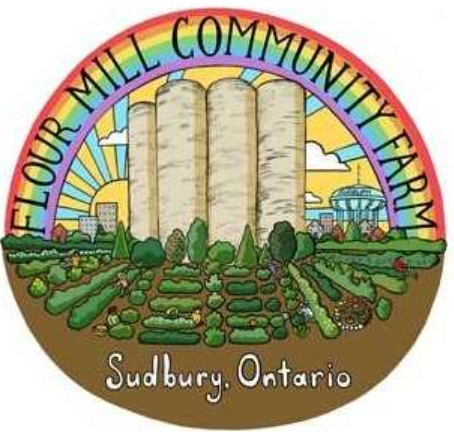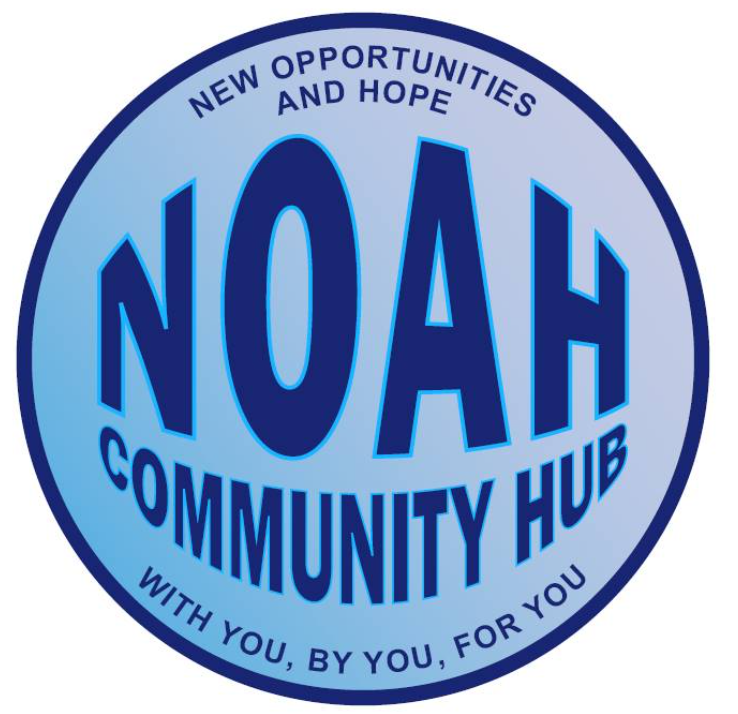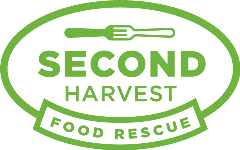Northern Canada Food Security Mapping and Network Analysis Project
Maple Leaf Centre for Action on Food Security
The Social Planning Council of Sudbury continues to work with the Maple Leaf Centre for Action on Food Security and regional partners across Northern Canada to strengthen the collective capacity of communities, organizations and other stakeholders to address the unique challenges to food security that exist in Canada’s Northern regions.

The Northern Food Security projects aims to develop a formal information sharing community across Northern Canada. This is done through identifying existing assets and related research as well as using this information for a gap analysis and consolidation of multiple learning opportunities. Collecting data to fill gaps in asset mapping and formulate a network analysis approach to understand how networks find and distribute resources, how they interact with policies and legislative structures, and what types of initiatives/programs are achieving success at addressing food insecurity.
In the next phase collected data will be interpreted with regional partners moving toward the establishment of knowledge and learning networks through sectoral tools, infographics, briefings, map layers to communicate information and priorities widely and improve the focus for northern food security issues
Northern Ontario Food Sovereignty Collaborative
The Northern Ontario Indigenous Food Security Collaborative is a community-led initiative that is bringing Indigenous practitioners, funders and other stakeholders together to develop a food system planning and resourcing process that strengthens Indigenous food sovereignty and food security both on and off reserve communities in urban and rural settings.
The collaborative supports community-led food systems planning with funding and technical capacity and uses the co-created community plan as blue-prints for resourcing food security interventions across the food system, from households to community initiatives and entrepreneurs.
The project focuses on developing an indigenous focused governance and program delivery structure, recruiting additional funding partners and community advisors, developing a strong evaluation and research strategy, and piloting some grants for planning and projects where communities are already well positioned.
The Flour Mill Community Farm is located in the City of Sudbury. It is the first urban farm in Northeastern Ontario with a focus on improving outcomes of marginalized youth through employment training, work experience and character building.

This initiative aims to break the cycle of poverty by intercepting youth at a transitional stage in life. Ecological urban agriculture is used to offer youth an opportunity to develop employable skills and healthy work ethic. Youth participate in entrepreneurial training.
By learning these skills and gaining this experience, these marginalized youth are able to put themselves in a position to create a better life for themselves.
Tenants Safety and Engagement
The Tenants Safety Group is a response to the myriad of safety issues identified by tenants living in social housing neighbourhoods. In 2020 the SPC Sudbury engaged with tenants in their own neighbourhoods to develop neighbourhood plans, identifying priorities and uncovering and accessing previously untapped supports and resources. Going into 2021 the group will be shifting their focus to tenant engagement and creating channels for effective communication with community stakeholders, services, and supports.
In order to address some of the information gaps regarding available and changing services and resources during the pandemic the SPC Sudbury created a Mental Health Resource Guide to help individuals and families experiencing Mental Health and Safety issues be able to find appropriate and timely information about resources within the City of Greater Sudbury. A general Mental Health Resource Guide was also created. The guides were distributed to Greater Sudbury Housing Corporation tenants, shared with community organizations, via social media, and is available for review here.
es. Strengthening neighbourhoods by fostering cross neighbourhood mentorship and disbursement of micro-grants for community needs and projects not covered by anyone else, to help develop and action community plans and interventions.
Emergency Crisis Response
The Emergency Crisis Response project worked with 103 Northern Ontario First Nations communities to help address the increased demand and anxieties around food. Active in communities that were seeing increased food shortages in community stores and equitable food programs like Good Food Box programs due to disruptions to the usual supply chains and additional costs of transportation, on top of environmental crisis such as floods and forest fires.
Emergency Remote First Nations Project
The Emergency Remote First Nations project focused specifically on remote First Nations and aimed to improve food access and food sovereignty for households severely impacted by COVID. This included funding for hampers, gift cards, meals to community members or financial support for hunters, fishers etc. to gather food and to produce community and/or household gardens.
Noah Community Hub (New Opportunities and Hope)
Since 2011 The NOAH Community Hub has been a mobile hub that brings organizations and community members together to address the impact of poverty and isolation through a process of community led social development.
NOAH is a collaboration between volunteer community members who pool resources to lessen the impact of poverty and isolation. The hub consists of community advisory committee that oversees resources and ensures they are directed where they are most needed in a timely way. The Social Planning Council of Sudbury continues to convene these collaborations.

Convening with partners such as the Greater Sudbury Police Services, Greater Sudbury Housing Corporation, Public Health, social services, volunteer organizations, churches and community volunteers, the hub consists of a community steering committee that oversees resources and ensures they are directed where they are most needed.
The work of the hub includes community planning in low-income neighbourhoods with residents, implementing actions and interventions that have been identified. Helping to establish and/or strengthen neighbourhood groups or associations and connecting residents with supports and servic
Collective Kitchen Evaluation

A long-term evaluation, The Collective Kitchen program focuses on nutrition, menu planning, budgeting, food handling, recipe development and improved self-sufficiency. The goal of the program is to help vulnerable women experiencing challenging life circumstances learn how to pool resources to improve their purchasing power and better meet their basic needs.
Community Emergency Fund
Since 1998, The Community Emergency Fund has been a fund of last resort that helps support individuals and families in urgent need. The Social Planning Council of Sudbury continues to engage in fundraising for this program where 100% of the donations are distributed to qualifying applicants. We continue to administer the emergency funding to individuals and families to mitigate emergency circumstances providing vouchers to grocery stores, heating utility costs, rent assistance, medication costs and other emergency needs.
Food Rescue

Second Harvest’s Food Rescue program matches food donations from businesses to those in need. The Social Planning Council of Sudbury works in partnership with small community groups so they can take part in this important program.
Project Impact

Project Impact is a partnership with the Coalition for Livable Sudbury that supports small community projects and citizen engagement. Donations are collected, community members pitch ideas, the community votes, and the projects with the most votes get funded. Participants are supported in planning their projects and accessing resources.
Some of the projects include:
- The Elm West Community Garden added a small greenhouse and planted all 5 garden beds to feed neighbourhood families.
- The Chelmsford Commemorative Garden.
- Seniors Helping Seniors made strawberry and bumbleberry jam with Coniston seniors.
- The Place Hurtubise Clothing Exchange allows families to swap clothes as their kids grow and their needs change.
- The Sudbury Women’s Centre held their Sew Eco projects.
- STOP continues their harm reduction and outreach work.
- Junction Creek Stewardship Committee invited local schoolkids to design signs that will be going up along the creek this spring.
- Lansdowne Public School got four rain barrels for their gardens.
- The Northern Ontario Railroad Museum and Heritage Centre partnered with Science North to make educational signage for their milkweed patches.
Fair Food Markets
Since 2018, The Fair Food Markets project have run mobile public food markets in two low-income areas in Greater Sudbury, Ryan Heights, and Paris Street. Community members have had the opportunity to access low-cost groceries and a rotating roster of services and supports through this program. By combining food security and an intervention with reliable and predictable rotation services agencies and community support organizations, the project has been able to increase the safety and well being of the community. The public food market significantly lowers the cost of food for consumers through selling wholesale foods and goods at cost, while also providing neighbourhood engagement and volunteer opportunities.
Feasibility Study For The Women’s Sector
Beginning in 2019, SPCS conducted a feasibility study for an organization serving women which investigated the collaborative landscape focusing on services available to women and their families. An emphasis was placed on the issues of housing including sustainability and financial implications of relocating to a larger space.
The plan engaged stakeholders and accessed the five-year service and financial demand for the organization. It also assessed organizational capacity within the context of the services and policy landscape, existing supports and services in the community, and potential partner services with focused stakeholder engagement from multi sectors including health, social services, justice, and education serving women in a poverty reducing capacity.
Youth Collective Impact Project
The Youth Collective Impact project is a collaboration with multiple youth serving agencies to address high risk behaviour in youth. We convene an action committee to oversee a larger planning committee and action project activities using a consensus-based decision-making protocol. The project enrolls service agencies and community organizations that work with youth and together work on research to identify the root causes of youth engagement in high-risk behaviours. Engagement and research identified suicide prevention and life promotion as priority. The strength and gaps in community support for youth mental health were more clearly understood. By using the Suicide Safer Community framework, links were created between community agencies and organizational priorities
Since this project, the committees formed remain intact and continue to work together. Enacting collaborative plans that leverage existing services and give youth between the ages of 12 and 25 direct access to mental health and addictions support as well as various community and social services, such as housing and employment, in an integrated stepped model of comprehensive care. The group recently submitted a Greater Sudbury Youth Wellness Hub proposal: An Integrated Stepped Model of Comprehensive Care to the Minister of Mental Health and Addictions.
Street Art Project
The Street Art Project brought together youth who are were at risk of being involved in graffiti, those currently on probation, and those who have not been charged to create solutions to the growing incidence of graffiti and tagging in the city. The project provided an outlet for creative expression, building a sense of community and engaging youth. We provided project administration, coordination and facilitation. Partner contributions included in-kind staff time, meeting space and links to youth and expertise.
The Power Up Project partnered with Greater Sudbury Utilities and We Live Up Here to give canvasses, safety training, paint and tools to local artists. The project used art to design a better community, change perceptions and improve the quality of life for citizens, especially those who are excluded and marginalized.
Valuable Volunteer Program

The Valuable Volunteer Program evaluation focuses on volunteer and organization satisfaction, program effectiveness, and program benefits to volunteers and persons with disabilities and seeks to answer whether the Valuable Volunteer program provides volunteer opportunities for persons with disabilities. The program provides training for organizations to reduce barriers and matches persons with disabilities to organizational opportunities where they can experience the benefits of social inclusion and connection that volunteerism provides
Ward 8 Community Action Network (CAN)

The Social Planning Council of Sudbury has worked closely with the Ward 8 CAN to plan and implement an outreach strategy that would result in a greater engagement of residents in the CAN who live in low income neighbourhoods. Activities include electronic asset mapping, demographic profile, survey design and administration, facilitation of neighborhood input sessions and neighbourhood outreach. On-going community development support in the form of training to social housing neighbourhood tenants on-going.
Food Share Program
The Food Share Program evaluation focuses on the importance of returning to traditional food sources, incorporating these ingredients into local diets, and promoting traditional ways of life. The program helps Indigenous populations in the region to reconnect/enhance their connection culturally, physically, and environmentally with traditional foods.
Accomplished through four initiatives: foraging for wild edibles, harvesting forest meats, harvesting freshwater fish, and developing an Indigenous food marketing campaign.
Relying on Indigenous Elders/Knowledge Keeper, program staff/partners and community members, the program enhances food literacy, improves mental emotional, physical, and spiritual health, and increases independent consumption of seasonal and traditional foods.
